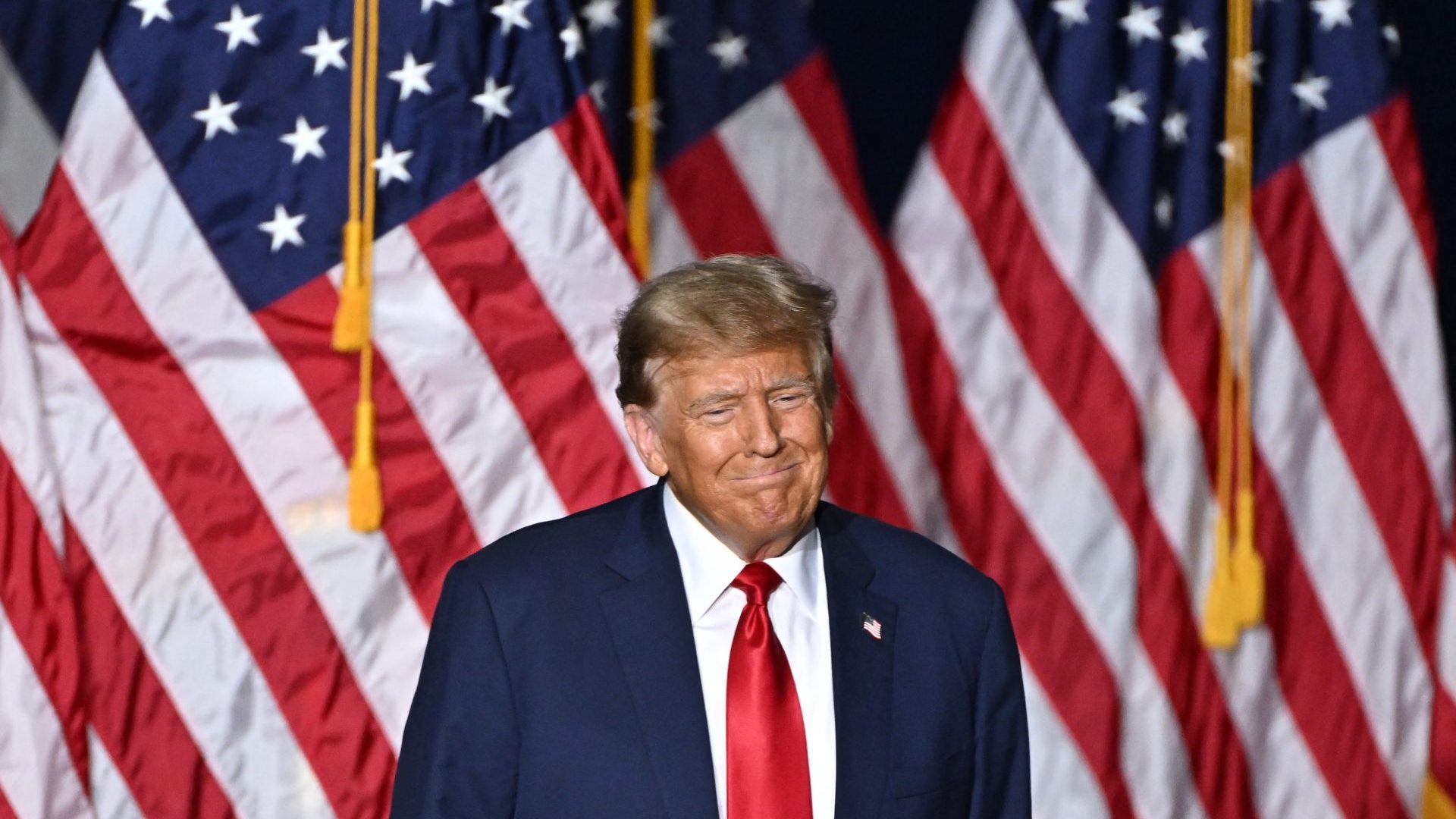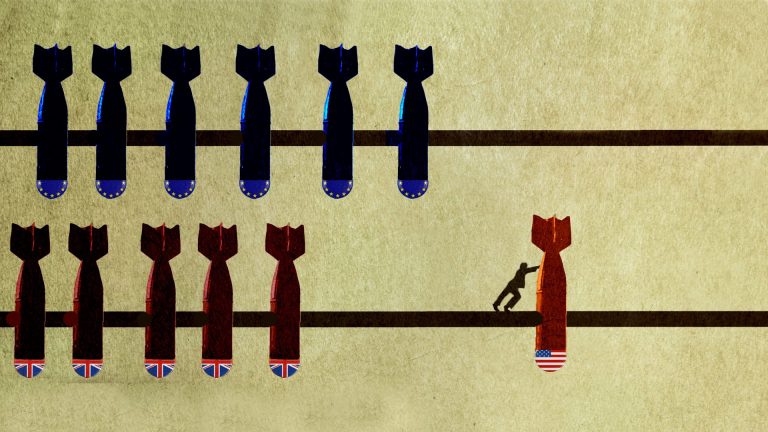Only around 100,000 people have voted, but the Republican primary is already over. The results of the Iowa caucus could not have been better for Donald Trump. He’s got a record margin of victory, his challengers are divided, and there is no route left for anyone else. Odds on, he’ll be the only candidate still campaigning by Super Tuesday, when multiple large states have their votes at once.
For those who don’t follow every detail of US politics, it is worth taking a step back before we get into what all of this means. Unlike the UK, in the US voters can directly choose the candidate for each of the major parties for the presidential race, a process known as the primaries. Similar processes are used to select candidates for the House and the Senate.
Voters can register as Democrats, Republicans or independents. In most states, registered Democrats can vote in Democratic primaries, and Republicans in Republican – but some let independents vote in one primary contest of their choice.
Historically, some smaller states hold their primaries earlier than others, giving them outsized importance in the race relative to their population – most notably Iowa and New Hampshire.
Iowa is a particularly unusual case as it holds a caucus, rather than a primary, requiring supporters to turn out for a meeting that can run to several hours long in order to cast a vote for their candidate. Because of this, Iowa is much more likely to deliver ‘surprise’ results than other states – many of the voters meet the candidates (often several times), and all politics here is retail and door-to-door.
In other words, if any state offered a chance to show that despite his dominant lead in Republican primary polling, Donald Trump was still beatable, it was Iowa. And yet Trump won Iowa by a margin of 30 points, with both Ron DeSantis and Nikki Haley almost neck-and-neck on 20 points.
That means that on a day when Iowa was -20ºC and covered in snow, Trump could still turn out enough hardcore voters for a landslide victory in a state that was his rivals’ best chance to break through.
The news gets better for Trump in that the next state in the contest is New Hampshire – and this was seen as the best chance for Nikki Haley to break through and create a narrative that Trump was beatable. New Hampshire allows independents to vote in primaries, there is no democratic primary for them to vote in, and Haley polls much better with independents than she does with registered republicans.
For that chance to be even remotely viable, Haley needed to be second place in Iowa and needed the other candidates to drop out. In a head-to-head race, if she secured a double-digit victory over Trump she had some hope of causing his aura of unassailability to disappear.
Instead, she’s going into New Hampshire – still heavily the best state for her – with Trump ascendent and hoovering up mainstream endorsements, and with Ron DeSantis still in the race, nominally ahead of her. Even a win in New Hampshire at this stage won’t change the story. The race is all but over.
That is something of a mixed bag for the prospects of Joe Biden, the Democratic Party, and anyone who fears a second Trump term. The hope of a bitter and divided primary is that your opponents rip off so many chunks against each other that the victor emerges weakened, and having spent lots of their money just to get into the race.
In practice, sometimes that goes the other way – candidates hone their message, drop what doesn’t work, and pick up proficiency. It could easily be argued his bitter primary with Hillary Clinton shaped Barack Obama into the fantastically skilled politician he became.
Trump’s primary battle does not seem to be doing him much harm. The optimistic case for Biden is that in hypothetical polling he does much better in matchups against Trump than he did against Haley (and slightly better than against DeSantis). In other words, even though the polls currently have Biden losing against Trump, they show him doing much worse against the other candidates.
The hope would be that now Trump is all but confirmed as the Republican nominee – something likely to be official within the next 4-6 weeks at most – then the election stops being seen as a referendum on Joe Biden’s performance and instead becomes seen as a choice between Trump or Biden.
That would enable lots more attention to be brought to Trump and his terrible past transgressions, which would be Biden’s best hope of keeping Trump at bay a second time.
Coming into the election season proper, though, is one last big unknown – and it’s one that is likely to damage Biden’s prospects more than Trump’s. Third party presidential candidates in US politics have no chance of victory, but can often attract enough votes that they might have changed the outcome.
In 1992, Ross Perot peeled votes off George H W Bush, easing the way to Bill Clinton’s first victory. Had Ralph Nader not run for the Greens in 2000, Al Gore would likely have become president. Democrats have accused the Greens’ Jill Stein of taking enough votes to hand 2016 to Trump over Hillary Clinton.
Stein – a divisive and pro-Russia candidate – is standing to be the Greens’ nominee again in 2024, but there is perhaps an even bigger disruptor on the slate. Robert F Kennedy, the nephew of the assassinated president John F Kennedy, initially said he would stand in the Democratic primaries against Biden, but is now standing as an independent.
Robert Kennedy is an anti-vaccination fringe and conspiratorial candidate, but the Kennedy name is a powerful one in US politics – at one stage he seemed to be polling at 15% among Democratic voters. Whose votes he would attract on the ballot is a question mark, but he also creates the potential for a real wild card from the Trump team.
It is already a given that a second Trump term would be very different to the first, with far fewer moderating voices, and much more potential for chaos. Should Trump think that the vote looks closer than he would like, Kennedy might be an attractive prospect. Trump has always liked the glamour of the Kennedy name, and might be drawn to the idea of a Kennedy endorsing him.
A spokesman for the Kennedy team told the New European that Kennedy would not serve, if asked, as vice president for either Biden or Trump, but candidates have said that in the past and then gone on to accept such a nomination. Even if he held to this, should Trump offer a cabinet post, Kennedy might be tempted into an endorsement. What might that do for low-trust undecided voters not yet on board with Trump?
The Republican primary is all but over, and election day is still ten months away. The thing to watch in the meantime might well be those fringe, third-party candidates. They might be the ones who effectively choose the next leader of what we currently call the free world.










